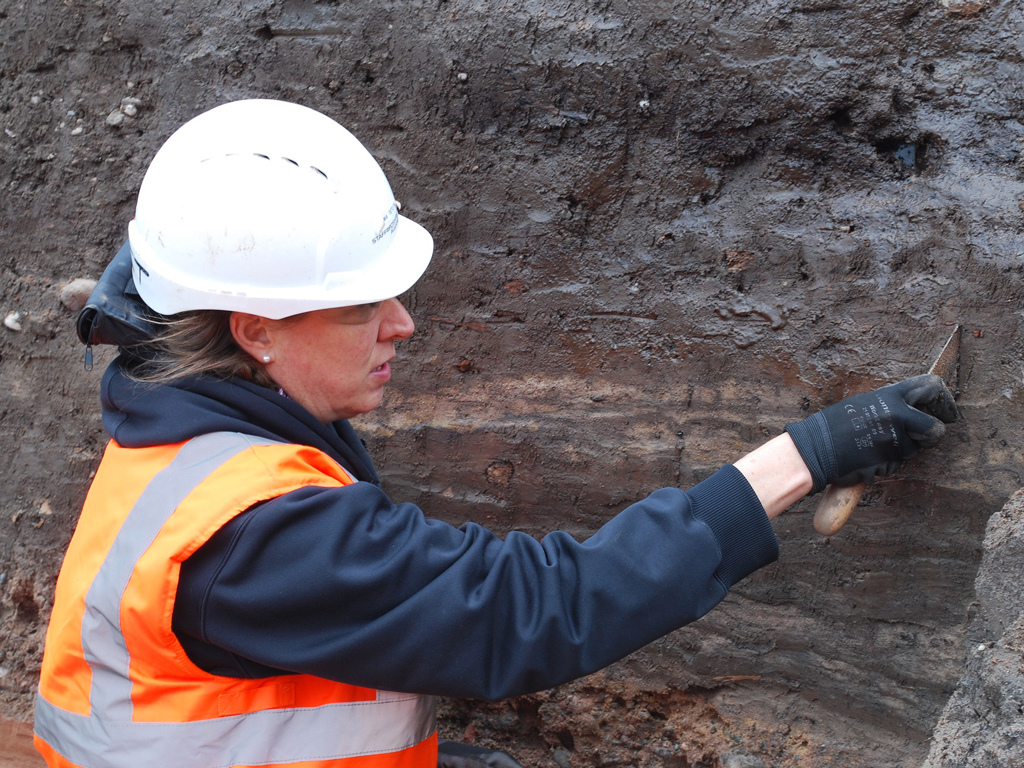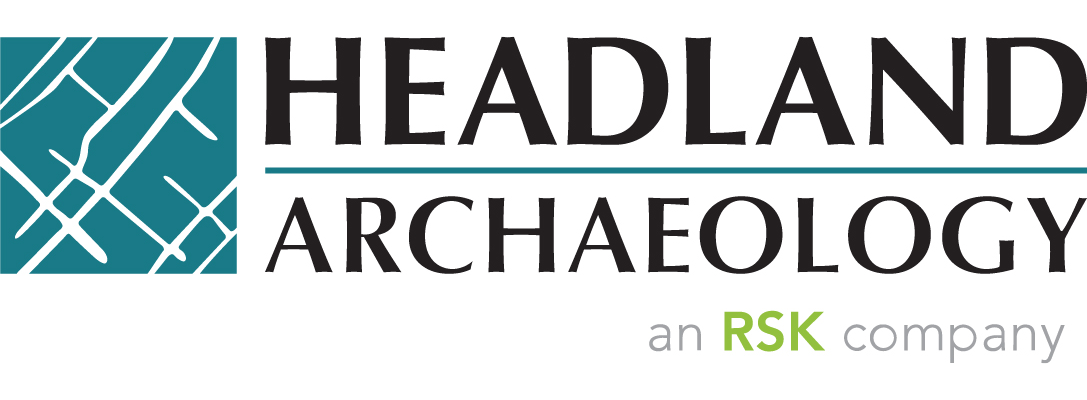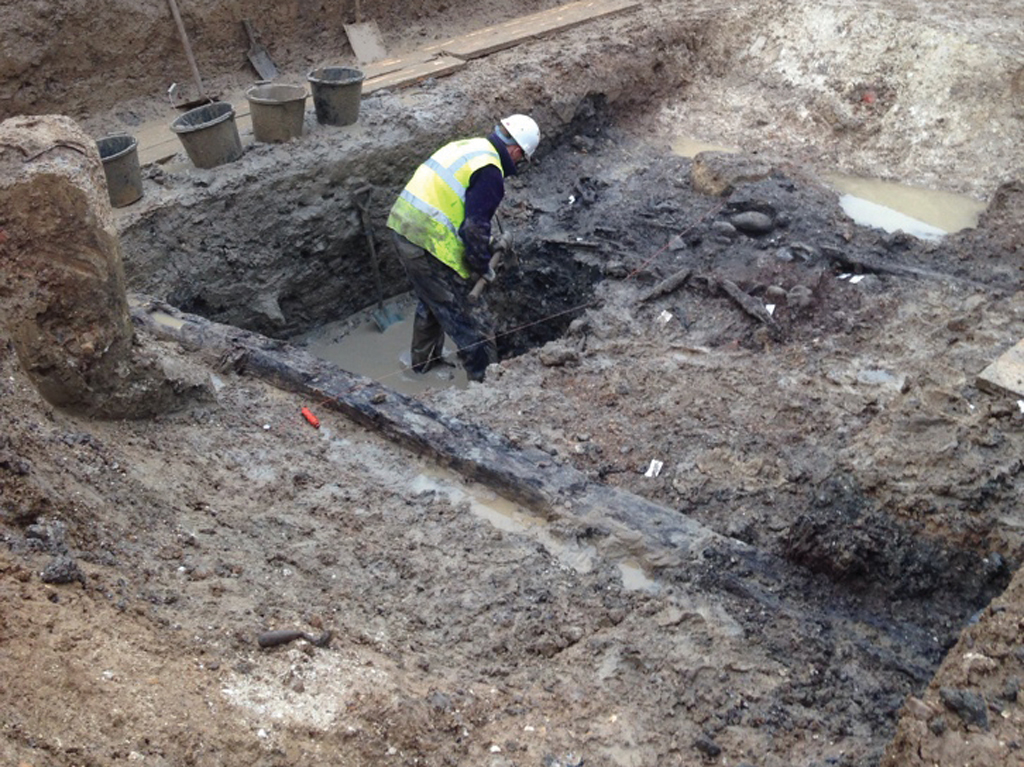Monitoring, more often known as a watching brief, can be very straightforward, and is often asked for on sites where prior evaluation has shown there to be low potential or the impact of the development is negligible. However, monitoring can also be requested on sites where prior access for evaluation has proved difficult, such as utilities. In these cases, monitoring can be one of the riskiest solutions and staff experienced in such works are essential.
Headland has a large team of monitoring archaeologists to draw from to ensure we always have staff available to meet clients’ programmes. Our teams are very experienced and will ensure that a record is made of any archaeology with minimal downtime. On the rare occasions where significant remains are encountered, they will quickly resource any additional excavation that may be necessary, and mitigate the risk of any time delays, ensuring the critical pathway is maintained with minimal disruption and expense.
Where monitoring is being undertaken on linear developments where prior evaluation had not been possible, then extra precautions should be put in place for unexpected discoveries. For works such as utilities, pipelines and grid connections for example, topsoil stripping and trench cuttings should be undertaken well ahead of the laying of pipes and cables so that any unexpected discoveries can be dealt with without delaying the contractors’ programme. Here, our experienced monitoring archaeologists and project managers will help co-ordinate any additional staff required.
As with all archaeological works, a report on the results will be required to discharge the planning condition. Our monitoring reports are tailored to the nature of the works and we keep them as simple as possible.






